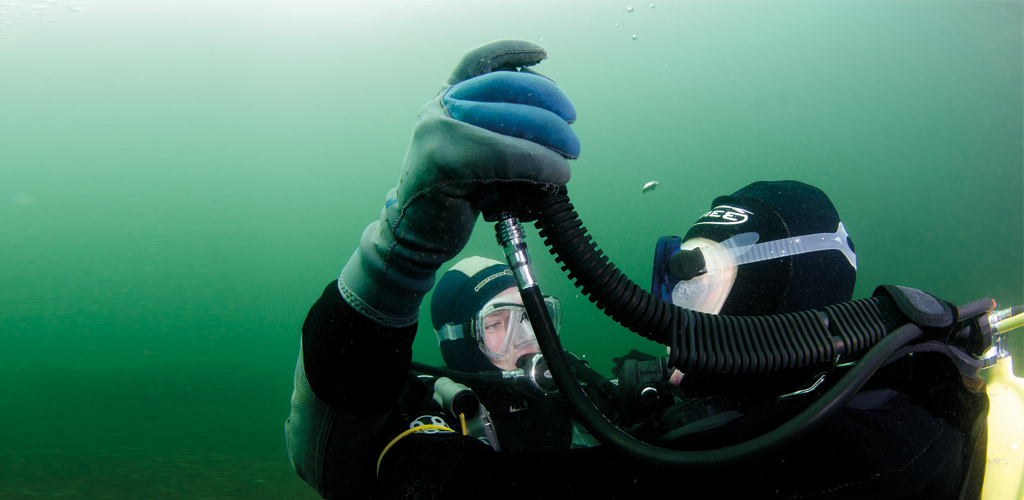
The full Annual Diving Incident Report for 2017 has just been released and is available to download. You can also watch the presentation by Brian Cumming at the BSAC Diving Conference.
Published by BSAC every year, the 2017 report recorded a total of 205 incidents throughout the UK.
BSAC’s Incident Report 2017
The 2017 report further highlights the growing evidence for immersion pulmonary oedema (IPO) being a significant causal factor in diving incidents, particularly fatalities. The 2017 report includes two cases of divers who became unresponsive in the water, surfaced and were recovered by others and successfully treated in hospital. Both divers were subsequently confirmed to have suffered from IPO. The actions of other divers, in one case not from the same group, played a significant role in preventing a more serious outcome.
Dr Peter Wilmshurst gave a presentation at the 2017 BSAC Diving Conference on the subject to further highlight the growing awareness and concern.
Immersion pulmonary oedema results from a combination of being in water and the body allowing excess fluid to enter the lungs, consequently interfering with the lungs ability to allow gas exchange.
Immersion pulmonary oedema: a key feature of the report
In light of this increasing body of information, we believe it is possible to identify evidence in some incident reports that IPO could be a significant influencing factor and include examples of:
- Divers with breathing difficulties when not exercising particularly strenuously. Breathing difficulties may be indicated by rapid, uneven or heavy breathing, coughing uncontrollably etc.
- Confusion, swimming in the wrong or random directions.
- Inability to carry out normal functions, whilst appearing to have to concentrate on breathing.
- Belief that a regulator is not working properly.
- Indication of ‘out of gas’ when their regulator(s) are found to be working correctly.
- Divers refusing or rejecting an alternate source when ‘out of gas’.
- Indication of difficulty of breathing when on the surface.
We would encourage all divers and Instructors to take note of the points raised in the report regarding immersion pulmonary oedema (IPO) and look out for developing information on this subject. In the meantime, view the videos presentations of both the incident report and the presentation by Dr Peter Wilmshurst on the subject at the recent BSAC Diving Conference.
Some other key features of the 2017 report include:
- The number of reported incidents is slightly down this year potentially due to a system change from a major contributor.
- The previously recorded unusual pattern of reported incidents in spring and early summer continues
- The eleven fatalities in the UK are lower than the average (13.2) for the previous 10 years
- The number of medical cases in divers for the 11 fatalities is unconfirmed so far but there are strong indications for likely medical causes including immersion pulmonary oedema, 7 of the 11 were reported as unconscious in the water.
- The average age of divers involved in the fatalities is 55.3. (in one case the age was unknown).
- Incidents of DCI have shown a reversion to previous levels of recent years and remain lower than the number of DCI cases in the previous 10 years
Help us to keep diving safe
If you have been involved in or witnessed an incident, please report it – in confidence – and help us to continue to shape a safe future for diving. Whether you are a BSAC diver or dive with another agency, a recreational or technical diver or if the incident happened in the UK or overseas, we want to hear about it.
You can report incidents confidentially at any time online. All reports are treated in confidence and any details used in future reports will be anonymous.



